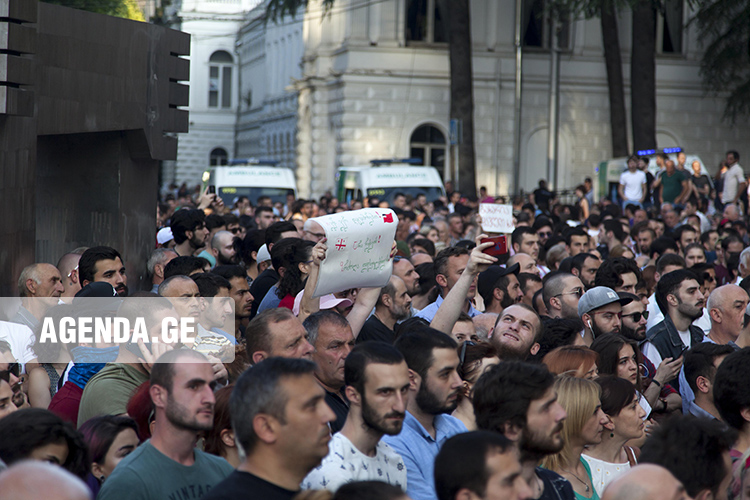Law enforcers take parliament yard as opposition plans rally today

The opposition says that demonstrators will not allow MPs to attend the parliament’s plenary session on November 26. Photo: IPN.
Law enforcers and emergency brigades are present at parliament in central Tbilisi, as last week the opposition announced “a large-scale rally and the blocking of the work of parliament” on November 25 and 26.
The leader of the European Georgia opposition party David Bakradze says that rallies will continue until the current state leadership “takes genuine steps to ease the current tension,” stirred after the rejection of the ruling Georgian Dream party proposed election bill on November 14.
The rallies will be peaceful and if the government decides to disperse demonstrators again, we will not go into conflict with police,” Bakradze said.
The opposition is now demanding 2020 parliamentary elections to be conducted along the German electoral model and by an interim government.
What is the German electoral model?
The German electoral model is a mixed electoral system. However, unlike the current mixed electoral system in Georgia in which 73 MPs are elected in single-mandate constituencies and remaining 77 based on proportional, party-list system, the German model allows parties to have as many MPs in parliament as many votes they receive in the proportional race.
For instance, in the 2016 parliamentary elections the ruling Georgian Dream party received 48 per cent of votes and if the country had a German electoral system the party would have had 72 MPs in the 150-member parliament. However, as Georgia had a different electoral model the party received 115 seats (71 were majoritarian MPs).
 Rallies in Tbilisi were re-sparked after the rejection of an election bill on November 14. Photo: Nino Alavidze/Agenda.ge.
Rallies in Tbilisi were re-sparked after the rejection of an election bill on November 14. Photo: Nino Alavidze/Agenda.ge.
The opposition says that introducing the German model for the 2020 elections only calls for changes to the election code and not in the state constitution and the support of at least 76 MPs instead of 113 [as constitutional amendments require].
Developments behind protests
The ruling party accepted the transition to a fully proportional electoral system starting 2020 instead of 2024 [as the current state constitution reads] in the summer, during June protests in Tbilisi.
However, the ruling party majoritarian MPs refused to vote for the bill proposed by their own party on November 14 that is why the bill was rejected, sparking protests in Tbilisi.
The ruling party says as the bill was rejected the country will move to fully proportional elections from 2024.
On November 18 police dispersed a rally in front of parliament building as demonstrators blocked the entrances of the legislative bodies and did not allow MPs in.
 Tweet
Tweet  Share
Share